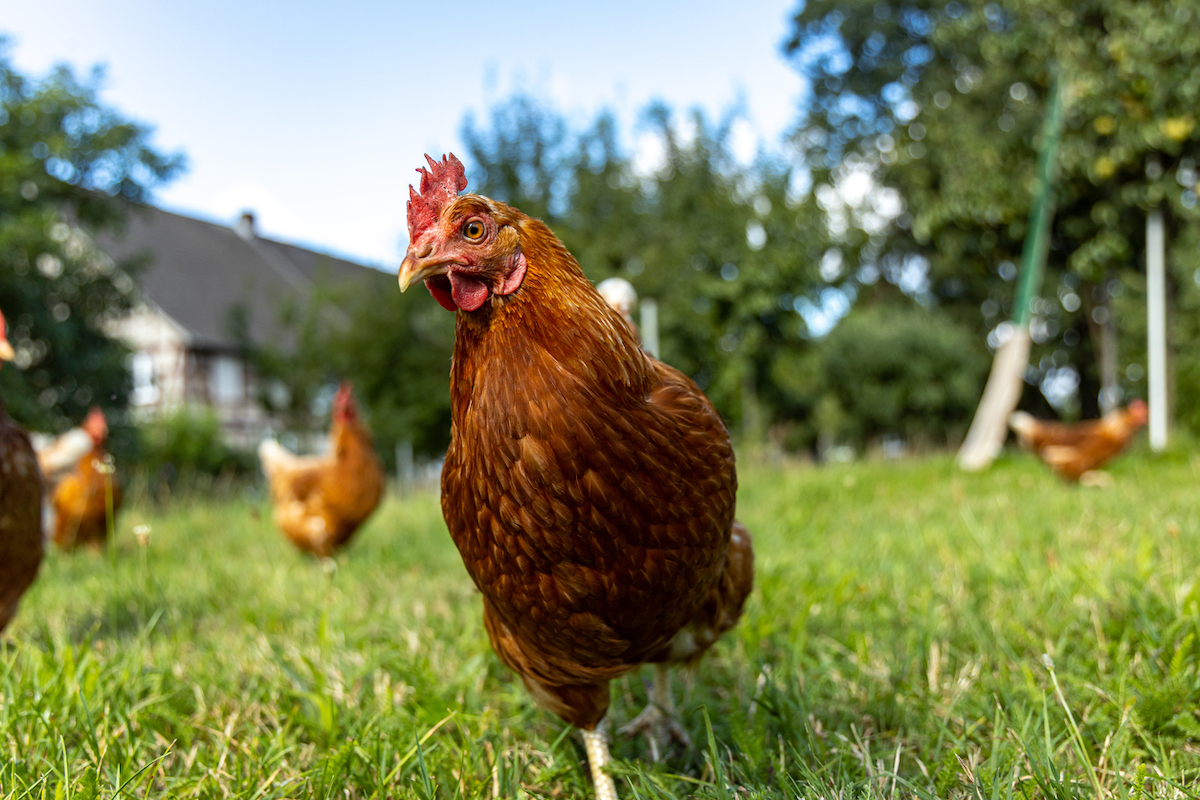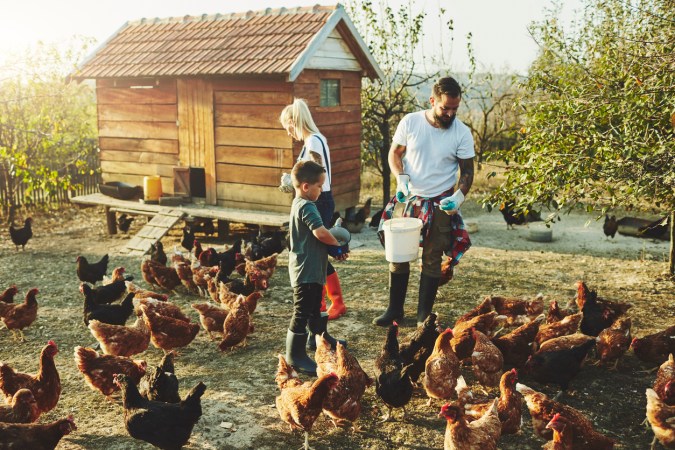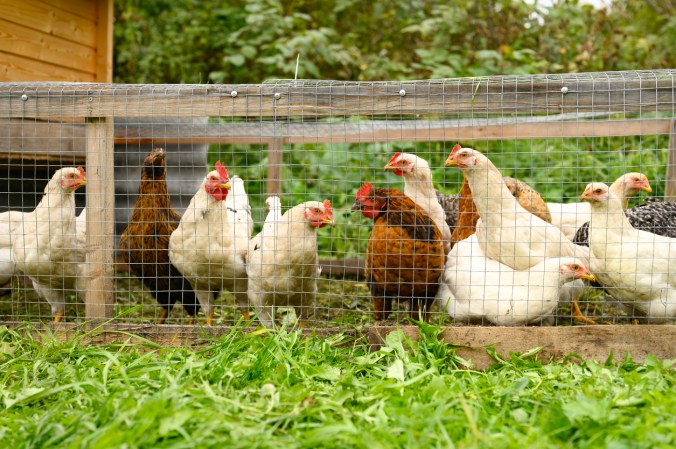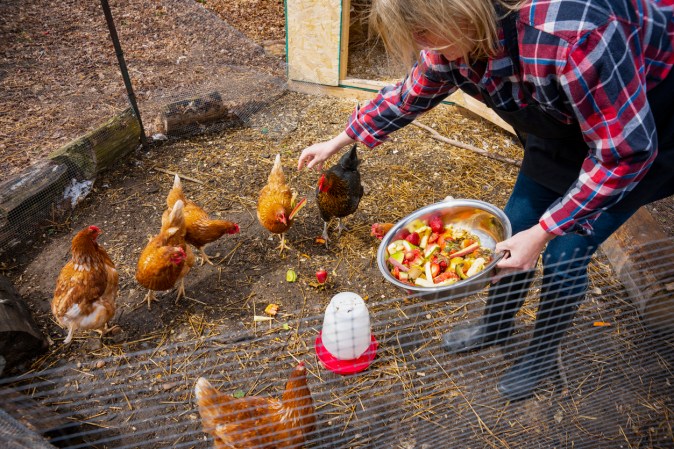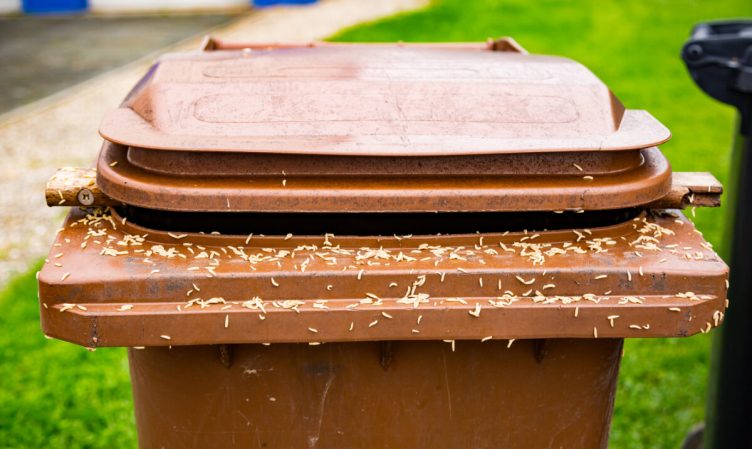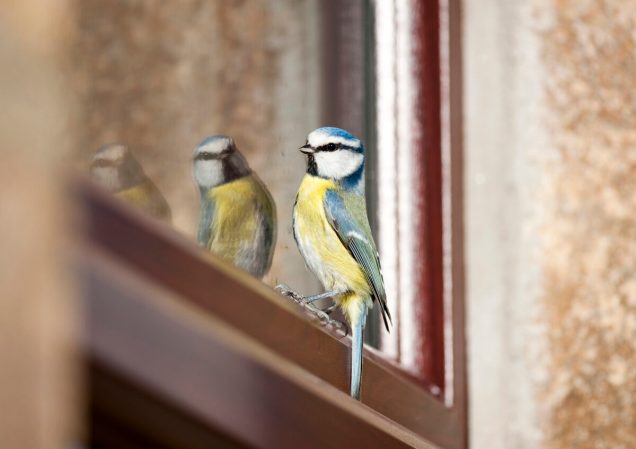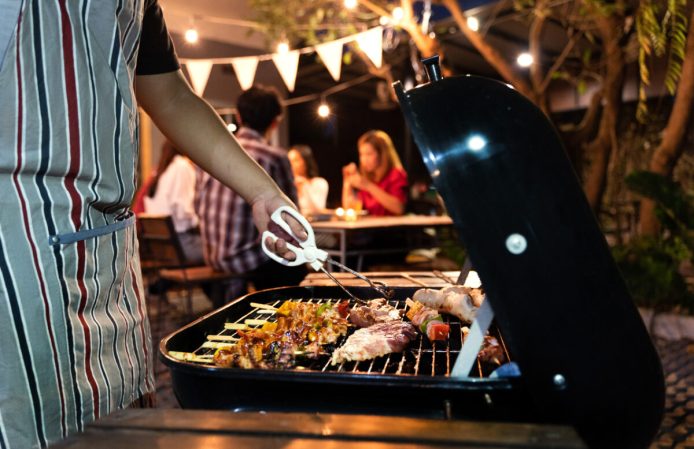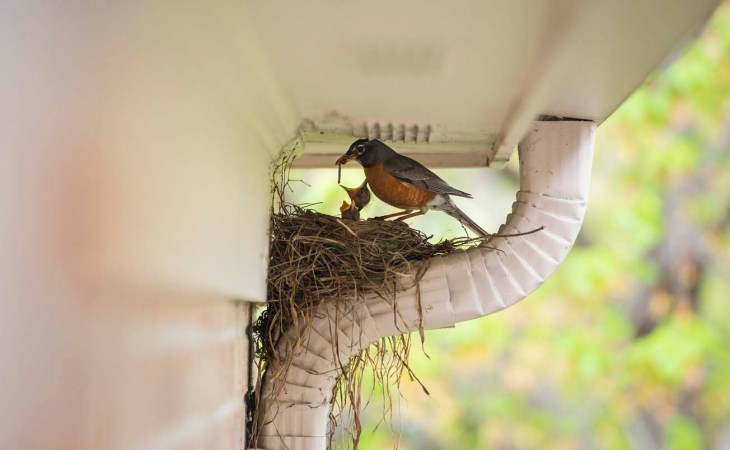We may earn revenue from the products available on this page and participate in affiliate programs. Learn More ›
Though the news is rife with reminders about skyrocketing egg prices (which were up almost 60 percent year-over-year in December 2022, according to the Consumer Price Index), the more sobering news has to do with the reason behind the price increase: plummeting supply. By the end of 2022, thanks to a deadly avian flu that wreaked havoc on the poultry industry, egg inventories were 29 percent lower than they were at the beginning of the year.
In early 2022, the Animal and Plant Health Inspective Service (APHIS) branch of the United States Department of Agriculture, announced that a highly pathogenic avian influenza (HPAI) had been detected in both backyard chicken flocks and commercial poultry. This particular strain of bird flu, HPAI A(H5), spread quickly. It was first detected in January of last year, in wild birds such as raptors and water fowl. By January 2023, the CDC’s bird flu summary reported poultry outbreaks of bird flu in 47 states, and outbreaks among wild fowl in all 50 states. Wild birds can show no signs of illness while carrying the disease during migration, says APHIS, which puts domestic poultry and other birds at risk. HPAI A(H5) can be spread from direct contact with an infected bird, and can also make birds ill if they come into contact with materials, tools, or surfaces that a sick bird has contaminated.
The risk of humans catching bird flu is low: Just one human case of avian flu been reported thus far, in New Mexico, for the 2022-23 flu season. Properly cooking poultry and eggs to an internal temperature of 165 degrees Fahrenheit kills bacteria and viruses, including HPAI A(H5), further reducing the likelihood of transmission.
Though this highly contagious and deadly strain of bird flu is a big concern for those who raise chickens (and threatens the health of the birds that visit your backyard feeders), there are steps flock owners can take to keep it from spreading. Read on to identify some concrete measures you can put in place to decrease the chances of infection for your feathered friends.
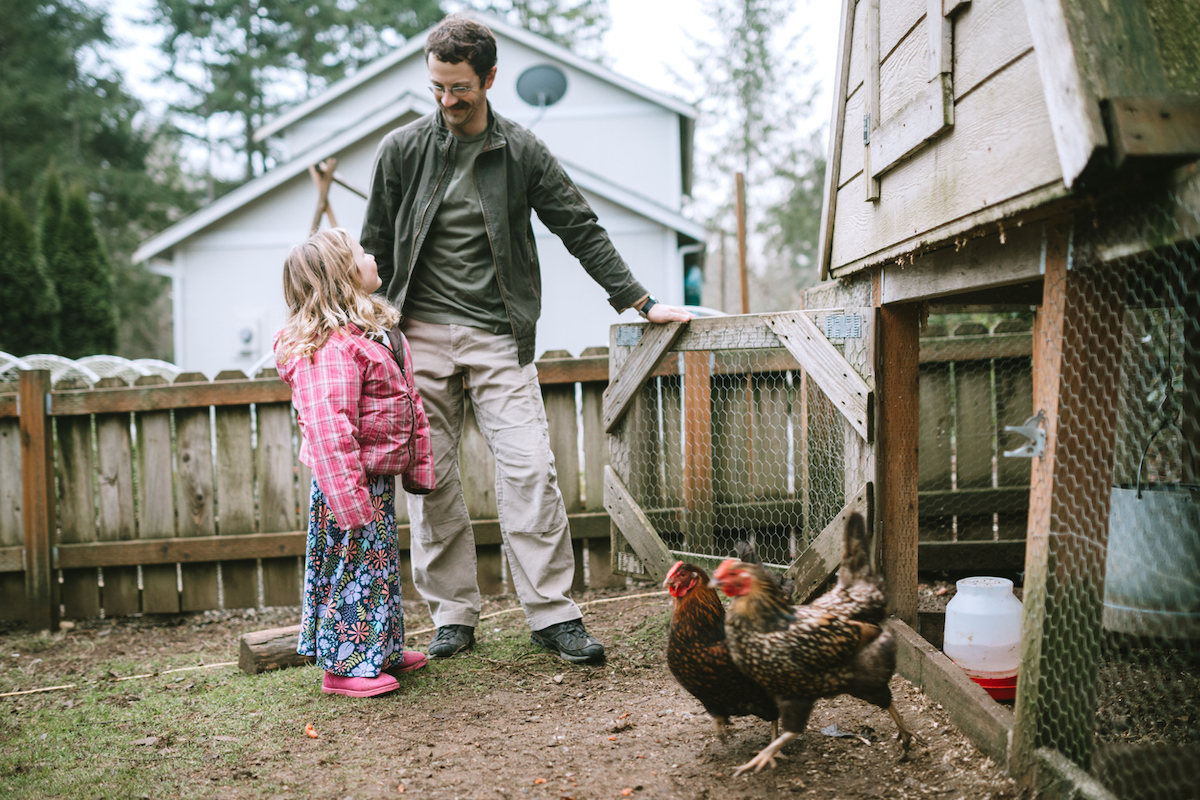
1. Keep germs away from your flock.
If you’ve been around infected birds or touched something that is contaminated, you could potentially spread the disease to your flock. Before heading out to tend to your chickens, always wash your hands. After you’ve finished working with your flock, be sure to wash your hands again.
Don’t forget that your feet could also track in the disease. If you’ve walked around infected birds, the virus could be on the bottom of your boots. Cover your feet with boot covers before walking over any areas where your chickens roam. It is also a good idea to put on a clean set of clothes if you’ve been around other birds.
Your hands and feet aren’t the only way HPAI A(H5) can find its way to your flock. It could also potentially be found on nesting boxes, egg trays, crates, tools, and even vehicles or tires. Disinfect anything that comes from an outside source before bringing it near your flock. Likewise, disinfect any equipment or tools before they leave your property to prevent unknowingly spreading the bird flu to another flock.
2. Don’t share tools and equipment with neighbors.
Under normal circumstances, sharing tools and other materials with a neighbor who also has a backyard chicken coop can be a positive thing. However, now is the time to limit sharing to prevent inadvertently spreading the disease. If you need to pass any tools or equipment back and forth, make sure they have been disinfected. Do not share anything, like cardboard egg crates, that you are unable to disinfect.
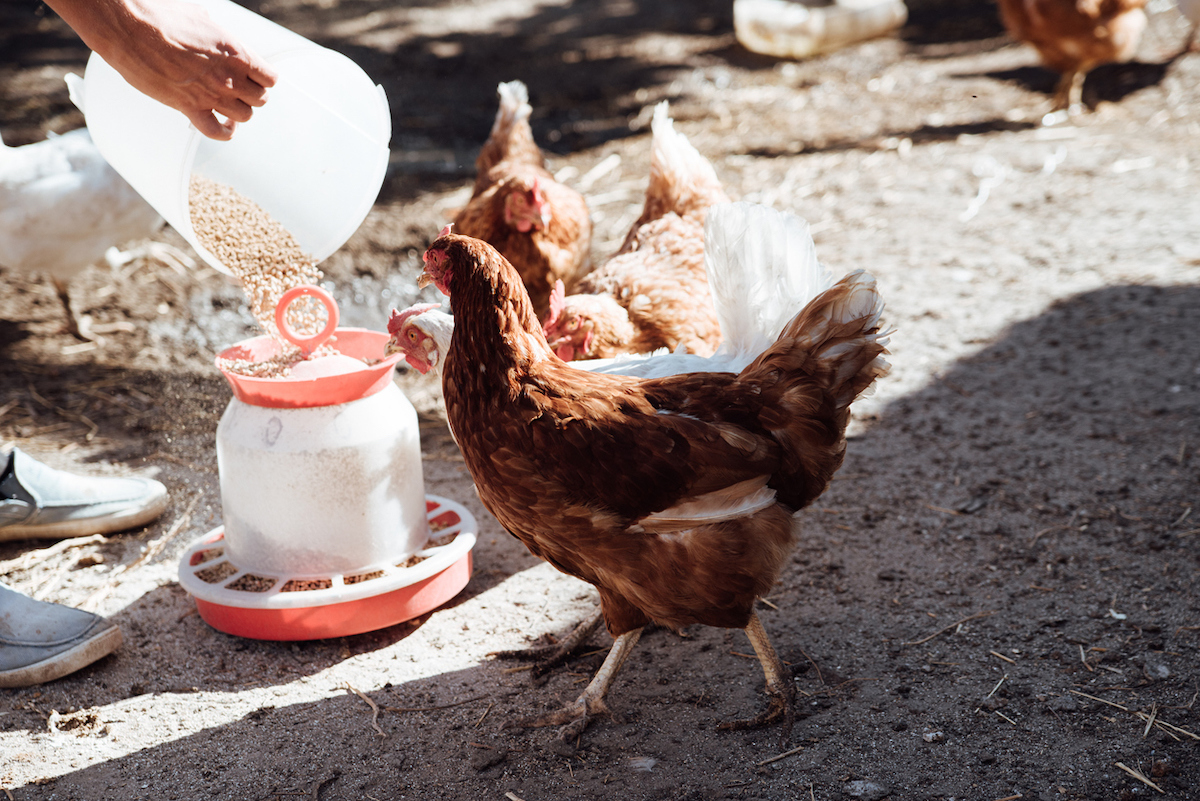
3. Deter wild birds from visiting your property.
Take measures to secure the water and feed bins for your chickens to make it less likely for a wild bird to try to eat or drink from them. Finally, if there are any areas on your property where wild birds or waterfowl frequent, consider putting up a fence to keep your chickens away from that space.
4. Isolate any of your chickens that have traveled.
If any of your chickens traveled to a show, veterinarian, or any other location where they may have been exposed to HPAI A(H5), keep them in isolation for 30 days upon their return. Closely monitor them for any signs of the disease before putting them back in the coop with the others. Similarly, if you purchase any new birds to add to your flock, be sure to keep them isolated for their first 30 days as well. Only purchase birds from a trusted source to limit the chances of buying a diseased chicken.
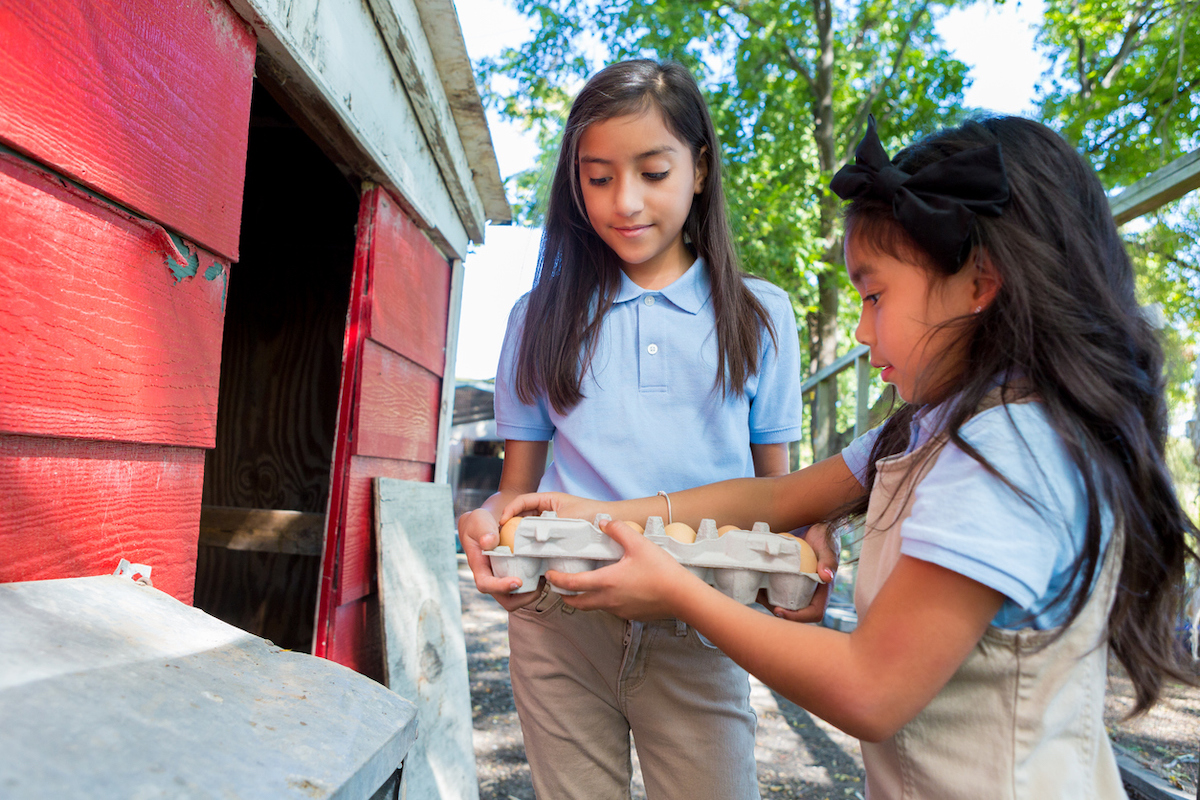
5. Limit visitors to your property.
Unless it is essential for others to be on your property, don’t let them visit. The more traffic you have on your property and the more people that come into contact with your flock, the more likely it is for them to get sick. Provide boot covers for essential visitors, and remind them to wash their hands before approaching your flock.
You should also avoid visiting other farms or neighbor flocks, if at all possible. If you do need to make a visit, be sure to disinfect your shoes, change your clothing, and wash your hands before coming back into contact with your flock.
6. Take down your bird feeders.
It’s not uncommon to find raptors near backyard bird feeders, as many species prey on songbirds. As an extra precaution, some experts recommend taking down bird feeders from your yard to discourage other birds from visiting and potentially spreading the avian flu.
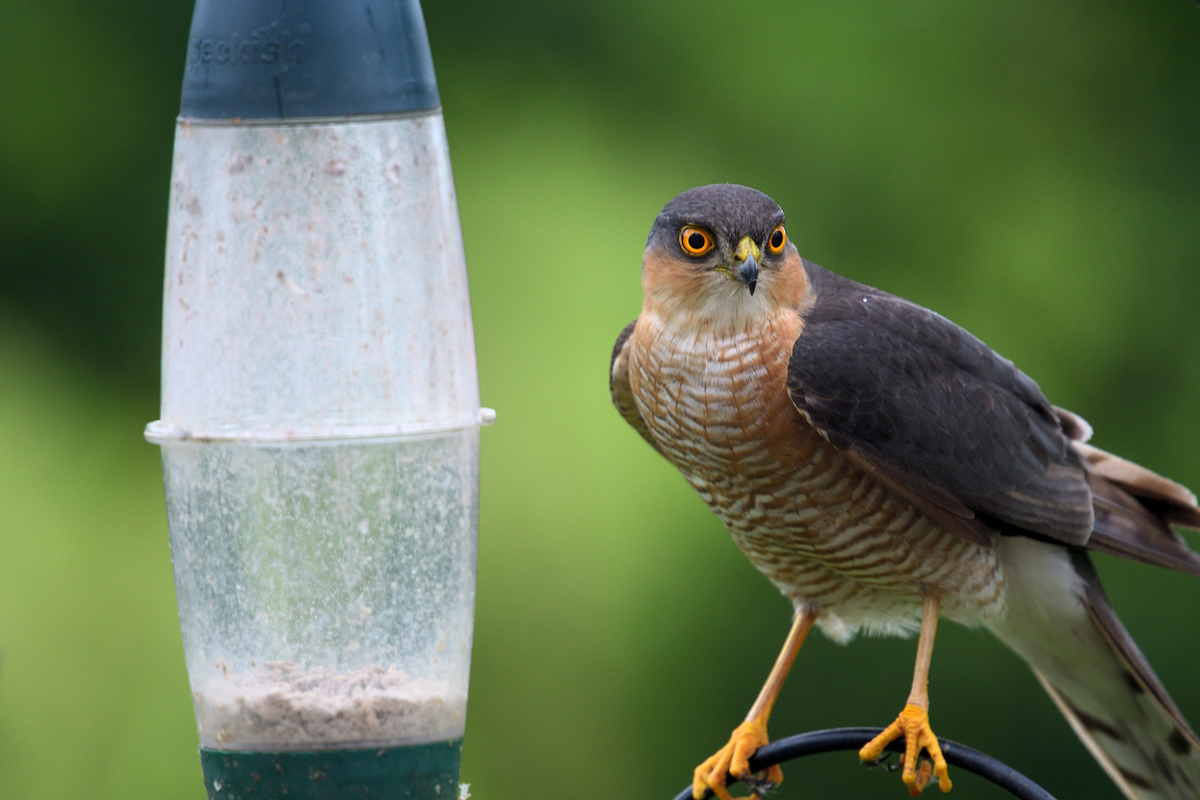
7. Report sick birds to the USDA.
Monitor your flock for any signs of illness. Some signs to be on the lookout for include a decrease in egg product, eggs that are misshapen or have soft shells, swollen head, eyelid, hock, wattle, or comb, coughing, sneezing, or nasal discharge, incoordination, diarrhea, lethargy, decreased appetite, and wattles, legs, or combs that look purple.
Some birds infected with HPAI A(H5) also die very suddenly without showing any of the indicators listed above. If any of your birds appear to be sick or die without cause, report it to the USDA’s toll-free number (1-866-536-7593). You can also contact your local veterinarian or cooperative extensive service.
An earlier version of this article was published on April 19, 2022.

